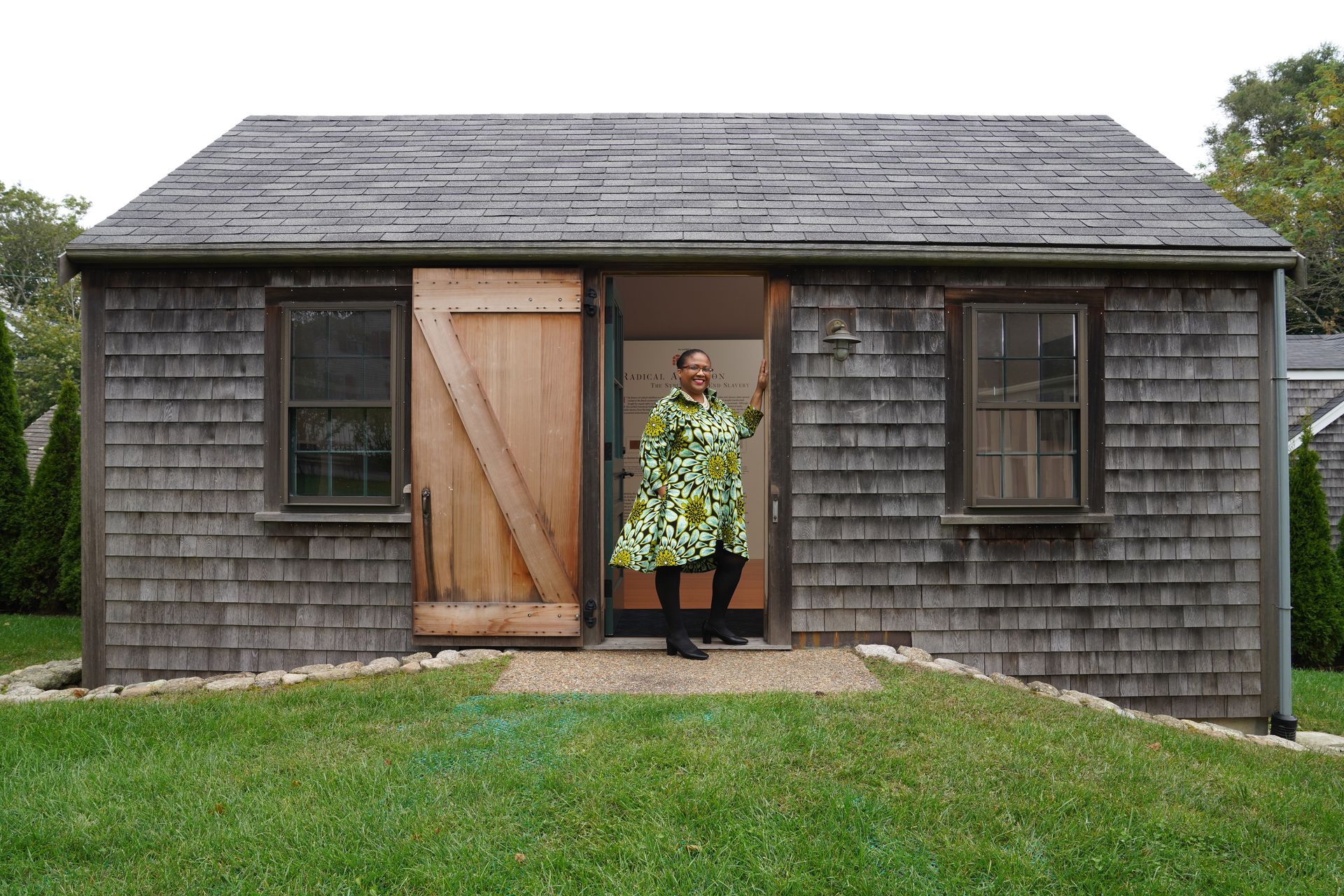Mile High Housing Solutions
Written by Bruce A. Percelay
Could Aspen’s housing crisis help Nantucket?
As Nantucket continues to wrestle with its housing crisis, it is instructive to look beyond our shores to other areas with similar demographics and geographic challenges to help find possible solutions. Aspen, Colorado, is one such example. According to Business Insider, Aspen is one of the most expensive towns in the United States—so much so that its nickname is “Billionaire Mountain.” A 2023 report from Engel & Völkers stated that when it came to the ski town’s real estate, it can cost more than $8,000 per square foot, over four times that of Nantucket.
While Nantucket’s median home price is now a jaw-dropping $3.5 million dollars, Aspen’s are in the nosebleed section with a median home price of $10 million dollars. The similarities between Aspen’s housing challenge and Nantucket’s are more obvious than they would appear. While workers can get in a car and drive to and from Aspen, the city is supported by only one state highway, and the traffic often makes commuting impractical. During winter storms, Aspen can be as isolated as Nantucket, making the need for workers to be close to their jobs as critical as ours.
According to Chris Everson, Affordable Housing Development senior project manager for the City of Aspen, “Had Aspen waited to address the housing problem before the meteoric rise in property values, creating the amount of affordable units that we have would have been extremely difficult.”
While Nantucket has for years been contemplating housing solutions designed to retain a working class and middle-class population, Aspen recognized its problem before the staggering rise in property values and got out in front of the issue. Since the 1970s, the town of Aspen has been enacting a series of programs designed to address what its leaders saw as an impending housing crisis. Aspen first began implementing a 1 percent transfer tax designed to fund various aspects of affordable housing. Says Everson, “The transfer fee has been a miracle.” From 2017 to 2019, the transfer fee generated nearly $40 million, and in 2020 alone, the fee generated over $21 million and has been rising steadily. Aspen also has produced more than 3,000 affordable housing units within Aspen’s city limits since the ’70s, which enables approximately half of its year-round population to live in affordable units. For comparison, it is estimated that roughly 15,000 people live in Nantucket year-round, yet Nantucket has only 332 affordable units.
In addition to funding from the City of Aspen through its transfer tax, a portion of sales tax is directed to affordable housing as are taxes generated from short-term rentals. Given that Nantucket no longer allows short-term rentals, this potential revenue source is now off the table.
In addition to other initiatives, Aspen is also entertaining proposals to offer deed restrictions with financial incentives to homeowners to put properties into the affordable pool. However, given the town’s median home price of $10 million, Everson indicates that the practical reality of a program like this having broad impact is limited. A program in nearby Vail called Vail InDEED is applying a more aggressive approach to deed restrictions for year-round residents. It relies on giving homeowners a significant financial incentive to not only earmark future sales to year-round residents but limit price appreciation. The success of this program is yet to be determined, but for those looking to monetize part of the value of their homes without selling them, it could be an interesting approach to expanding home ownership, and one that is being tested in Nantucket.
Given the success of Aspen’s coordinated policies on affordable housing production, it receives inquiries from all over the world as to how best to manage the problem. Everson states that for a community to begin addressing an affordable housing crisis, there are three things it must do if there is a serious desire to solve the problem.

First, Everson indicates that securing community support for affordable housing funding sources is essential. He says, “Without a source of income to address a large-scale housing problem, it is impossible to succeed.” Second, he notes that policies need to be created to catch up to the crisis. This can range from zoning relief for high-density development, to reallocation of tax revenues, to having governmental assistance for affordable housing creation. The third strategy that Everson refers to is “deal chasing.” He indicates that housing organizations or authorities need to either locate attractively priced land, renovate underutilized existing buildings or determine a way to build new housing stock to satisfy unmet demand.
Since there is limited land available for development in the Aspen area, the Western Mountain Regional Housing Coalition (WMRHC) continues to explore different pilot programs that aim to leverage current housing stock and rental affordability. Three programs are under discussion: One would support renters in accessing loans or grants to get into units (the current upfront cost is close to $10,000); another supports homeowners who are willing to add additional dwelling units on their properties; and the WMRHC also is considering a plan to contribute 30 percent of the purchase price in exchange for a price-capped deed restriction on the property. The overall idea is to place renters in a position to buy, which in turn, frees up rental units without having to focus on new construction.
But could programs like that also work on Nantucket? According to Anne Kuszpa, executive director at Housing Nantucket, the above proposals could be effective to earmark units in perpetuity for the year-round community.
Nantucket has started to explore similar avenues. The Nantucket Food Fuel Rental Assistance, managed through the Interfaith Council, for example, has a program that helps tenants with a lump sum to get into a unit. While it isn’t Aspen’s proposed $10,000, it does help them to get over the hurdle. “The bigger issue is that there are simply very few rentals available for people who work here. We have a red-hot local job market slamming into ice-cold housing availability,” Kuszpa says. This is what inspired the ACK NOW Lease to Locals program, which would pay a landlord to convert an underutilized or unutilized unit and rent it to a year-round family—currently, the program is in limbo due to a lack of funding.
Kuszpa also notes that, similar to Aspen, in getting homeowners to add additional dwelling units to properties, Housing Nantucket has started to explore the idea of supporting the development of accessory dwelling units, or ADUs, which will allow the creation of units alongside existing homes.
In terms of the deed restriction program, one was approved by the Select Board on May 15 during the Town Meeting. Named the Nantucket Year-Round Housing Restriction Program, the pilot deed restriction program was modeled from the one that was enacted in Vail, and gives the year-round community two points of entry into housing. The first is when an income-qualified buyer goes to find a home, they can put a deed restriction on the property in exchange for down payment assistance; and the second is for those who already own a home and can put a deed restriction on their property in exchange for a cash incentive. “The second option will keep the housing year-round, saving the homes for the future for year-round residents,” explains Kristie Ferrantella, Nantucket’s municipal housing director.
The program, which launches late this summer, was approved for $2 million in funding. The deed restrictions can’t be more than 20 percent of the market value of the home, and the person holding the deed restriction must qualify for up to 240 percent of the area’s median income.
Despite the various options being explored by Nantucket, Aspen’s experience clearly indicates that the simplest, most direct and most effective source of funding for the production of affordable housing has been the property transfer fee. Unfortunately, the long-sought housing bank legislation that would have enabled Nantucket to apply the property transfer fee to affordable housing was dealt a major setback in Boston as the governor’s housing bill was modified and no longer includes a local option to establish an affordable housing fund. According to Kuszpa, “When Brooke Mohr put forth her citizens petition at the Town Meeting to divert some of the Land Bank fee to housing, it was overwhelmingly voted down.” Kuszpa adds, “The local resolve to solve this problem through modifications of the Land Bank fee structure appears very limited; however, when we see ferries being canceled because of lack in manpower and restaurants limiting their hours because of worker shortages, it is possible the island’s attitude toward creating more affordable and workforce housing will change.”
While discussion about moving the transfer tax from the Land Bank to housing has been a live third rail, the reality of our housing shortage is affecting the quality of life on the island. Given the fact that the island now boasts over 50 percent open space as a result of Land Bank and Conservation Foundation acquisitions, it may be time for Nantucket to start looking West for new solutions.






